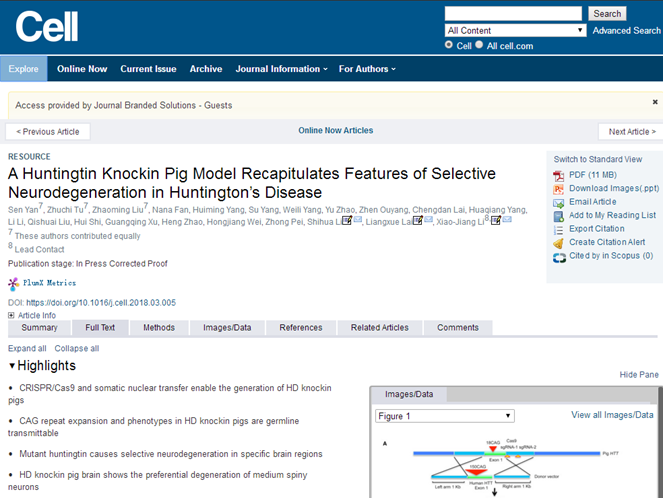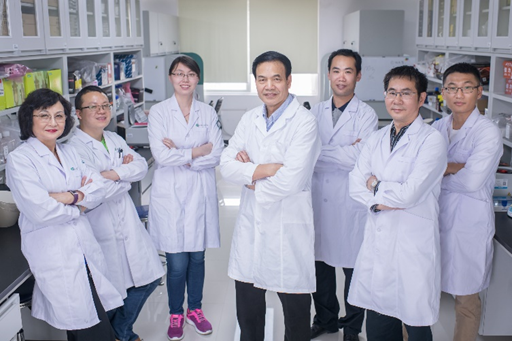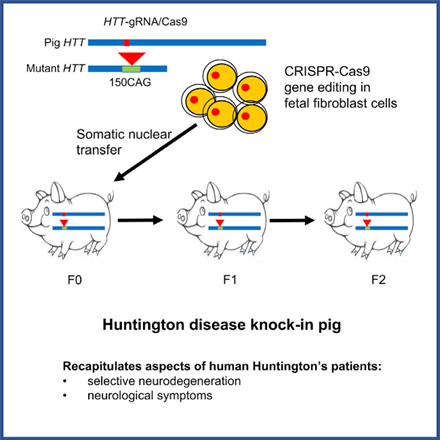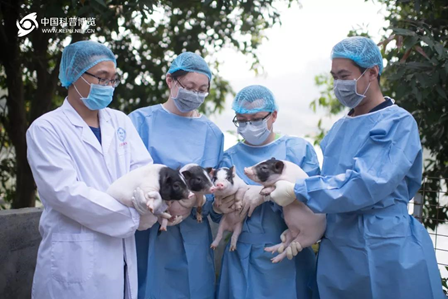- ABOUT JNU
- ADMISSION
-
ACADEMICS
- Schools and Colleges
-
Departments and Programs
- Arts College of
- Chinese Language and Culture College of
- Economics College of
- Electrical and Information Engineering College of
- Foreign Studies College of
- Information Science and Technology College of
- Environment School of
- Humanities School of
- International Business School
- International Studies School of
- Journalism and Communication College of
- Law School
- Liberal Arts College of
- Life Science and Technology College of
- Management School of
- Marxism School of
- Medicine School of
- Pharmacy College of
- Physical Education School of
- Science and Engineering College of
- Shenzhen Tourism College
- Research Institute
- Research Center
- Programs in English
- Majors
- Study Abroad
- Online Learning
- RESEARCH
- CAMPUS LIFE
- JOIN US
Headline News
Cell Publishes JNU Professor's Research
Time:March 30th, 2018
Source: News Center
Author: Yunsheng Su, Jing Yi, Xiaolin Qiu, Sen Yan
Publisher: News Center
On Mar. 30, a cooperative research result A huntingtin knock-in pig model recapitulates features of selective neurodegeneration in Huntington's disease was officially published by Cell magazine. The research was conducted jointly by three research teams: Prof. Xiaojiang Li's team of JNU’s Guangdong-Hongkong-Macau Institute of CNS Regeneration, Prof. Liangxue Lai's team of Guangzhou Institutes of Biomedicine and Health, Chinese Academy of Sciences, and Prof. Shihua Li's team of Emory University.

(Published in Cell)
The leading institute of this research is of Jinan University. And the paper's co-first authors are vice-researcher Sen Yan and Doc. Zhuchi Tu, of Guangdong-HongKong-Macau Institute of CNS Regeneration, JNU, and Doc. Zhaoming Liu, of Guangzhou Institutes of Biomedicine and Health, Chinese Academy of Sciences. And its co-responding authors are Prof. Xiaojiang Li, Prof. Xueliang Lai and Prof. Shihua Li.

(Team members)
After knowing the remarkable achievement, Prof. Pei Gang, Academician of the Chinese Academy of Sciences, said that this tremendous progress we Chinese scientists had made signified that China had taken the leading position in the field of research on animal model of pig and that the progress would greatly promote the innovation and development of Chinese biopharmaceutical industry.

(Flow chart of model preparation)
On Mar. 29, in the press conference of scientific achievements by Jinan University and Guangzhou Institutes of Biomedicine and Health, Chinese Academy of Sciences, Hong An, vice president of JNU, emphasized the extraordinary significance of this scientific achievement from three aspects: (1) The research of the world's first Huntingtin disease knock-in pig model by JNU’s researchers marked a great breakthrough by Chinese scientists in the field of the disease research model of large animal. (2) The effort will provide important technical support for the research on the pathogenesis of human diseases and drug development and evaluation. (3) The effort has made a great contribution to the national brain science and brain-like research as well as the technical commercialization of research findings application.

(Team members with their Huntingtin disease knock-in pigs)
This work was supported by the National Key Research and Development Program of China Stem Cell and Translational Research; the National Natural Science Foundation of China; GuangDong Province science and technology plan project, Research team project of GuangDong Natural Science Foundation; and NIH grants.
NEWS
- About the University
- Quick Links
Copyright © 2016 Jinan University. All Rights Reserved.




